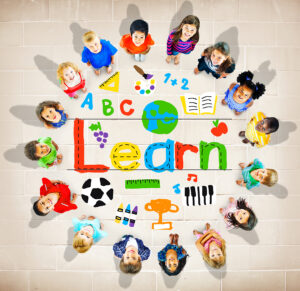NO!
How many times during the day do you hear this word from your toddlers and twos? Best guess…a lot! The ages between 18 months and 3 years can be very, very challenging for both children and the adults that care for them. This is a period of blossoming independence when little guys and girls are figuring out that they are their own unique people and not an extension of their parents or caregivers.
This desire for independence, unfortunately, conflicts with a level of development that is not quite in synch with the level of desire. For instance, a two-year-old may desperately want to pedal a tricycle by him/herself but just does not have the large motor control to do so. Or, on the other hand, a toddler may try to tell you that he wants a drink but just does not have the language skills to convey the information. All of this leads to frustration which, in many cases, leads to challenging behaviors.
So, how can you help children going through this state of development to learn how to handle these strong emotions? Well, here are a few ideas.
- Provide opportunities for children to practice self-control by playing group games that involve taking turns. Just keep the games simple and active (e.g., crawling through an obstacle course).
- Use words to label emotions when they occur. For instance, if a child becomes upset because the stack of blocks he/she is working on keeps falling down, you might say, “Wow! You are very frustrated because your blocks won’t stay in a stack.” Then talk through ways to handle those emotions (see next bullet) and problem-solve solutions together.
- Give children healthy ways of handling strong emotions when they occur. Water and sand play can both be very soothing. So can tearing up scrap paper or working with playdough. And, of course, be sure to validate children’s feelings when they occur to let them know that it is OK to have these types of feelings.
- Use visual or auditory cues to make waiting and sharing easier. For instance, set kitchen timer or use an egg timer when children need to share a favorite toy.
- Invite children to make choices! Giving children a say often helps head off battles. Just make sure you are OK with the choices before you offer them and then only offer two. For instance, “Would you like to have 2 cookies or 6 crackers for snack?” or “Would you like to read this book or that one?”
Even with all of these tips and tricks, just know that toddlers and twos are going through a very frustrating stage of development. In some ways, they are almost like teenagers…smiling one minute and screaming the next. Being prepared yourself will not only help reduce your stress level, it will give the children the skills they need to work their way through this challenging period in a constructive, positive way.




